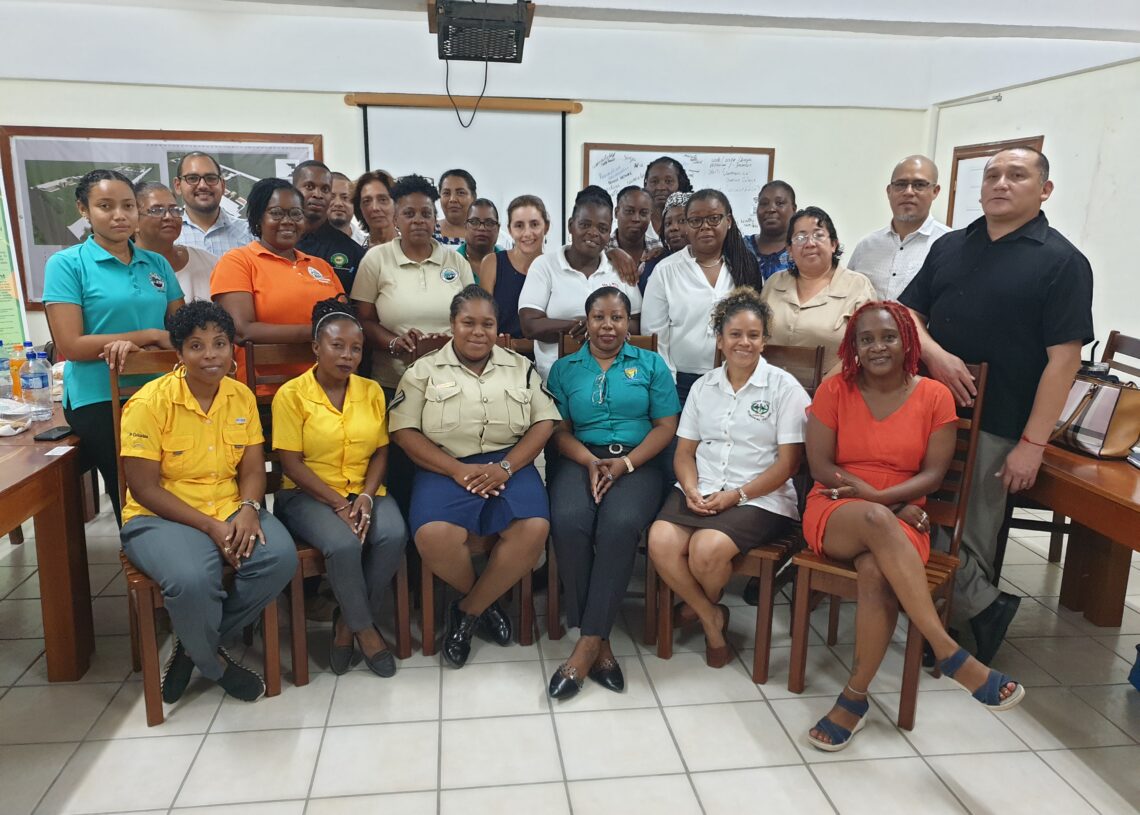From May 13 to 21, the COPOLAD III program held four workshops in Jamaica, Belize and Trinidad and Tobago to draw up drug intervention plans for vulnerable populations and link community-based processes with public institutions.
The objective of the workshops is that each country has its own “road map” to address problematic drug use and illicit micro-trafficking economy, under a territorial approach and working with the groups of populations with more difficulties in accessing to care services.
“We aim to build capacities in the territories while seeking and generating synergies between existing programs and services, working hand in hand with public institutions and civil society to implement prevention and comprehensive care services,” explains Raquel Barros, territorialization specialist of the COPOLAD III program.
With the support of Red Interamericana de Intervenciones en Situaciones de Sufrimiento Social (RAISSS), COPOLAD III offers training to countries in ECO2 Community Treatment model, which focuses on prevention and care from the perspective of community development, with the objective of making visible, strengthening and articulating the system of informal and formal networks to improve the living conditions of people with drug addictions.
The approach of territorialization of public policies allows the formulation of plans and projects articulating public institutions, civil society and communities in the territory. COPOLAD III is currently promoting these community landings in 14 countries that seek to set examples that can then be scaled up in other communities and serve as an example for national policies.
With which strategy?
In order to work on the development of community intervention capacities in the Caribbean, COPOLAD III provides technical assistance in territories with drug use problems and illicit economies following this pathway:
- Training processes: online and presential training in ECO2 (Community treatment and network building).
- Training guide in the Eco2 model.
- Exchange of experiences.
- Study visits.
The final objective is that each community has a diversified network of action, which also addresses education, labor insertion, basic assistance…, in order to reduce people’s situation of vulnerability.
Currently, the first phase of territorialization has begun in six Caribbean countries in this area: Dominican Republic, Jamaica, Belize, Suriname, Bahamas and Trinidad and Tobago.






